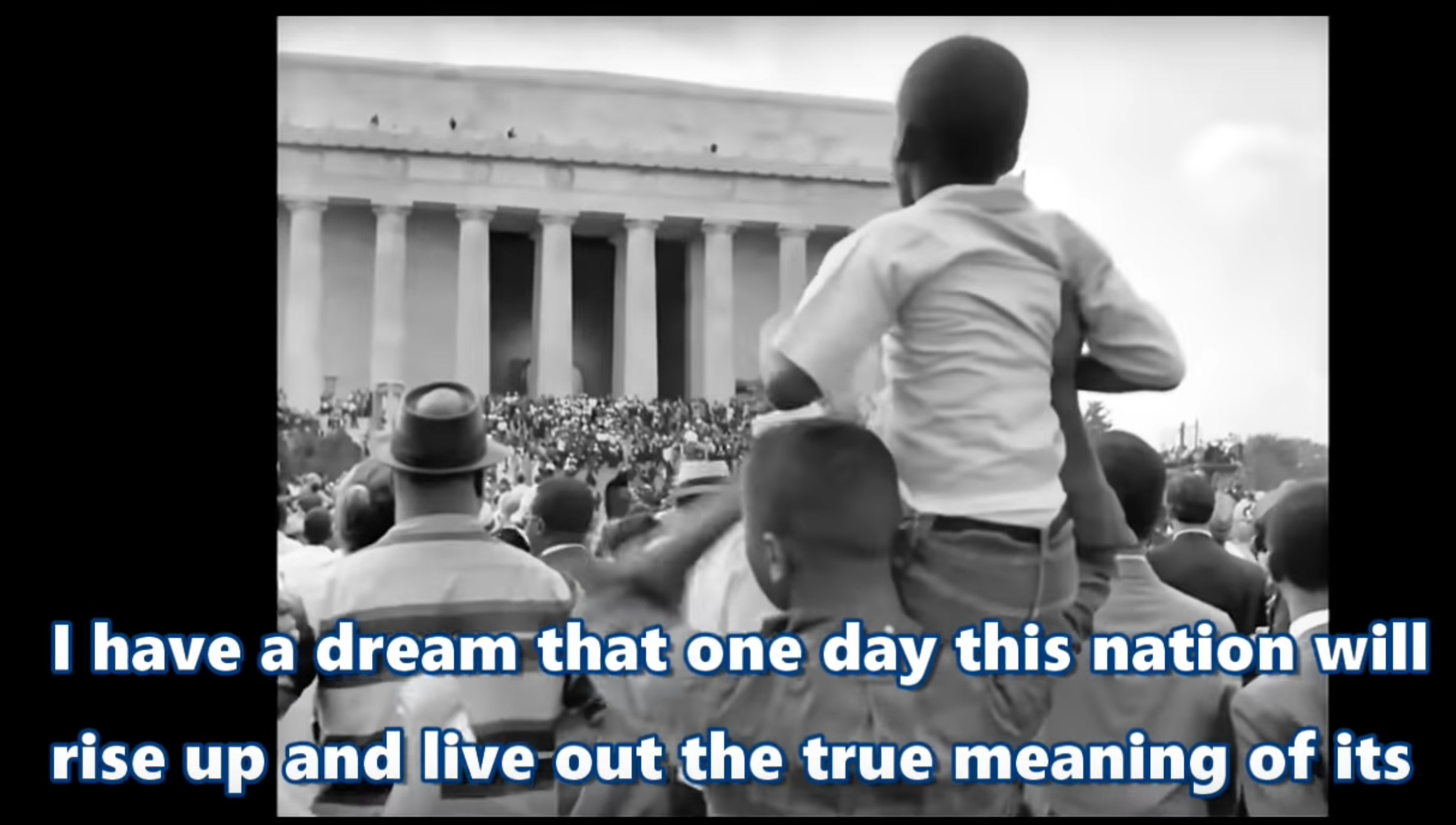Book Review: The Nickel Boys
Date - 03/22/2020
Themes: Historical Fiction, Historical, America
Characters: Elwood, Turner, Harriet
Review
One fine day, I was discussing with a close relative, the importance of great orators. The influence they have on people and the range of impact that they can potentially generate. Stepping through various such orators, we also happened to discuss Martin Luther King Jr (henceforth referred to as MLKJ). We ended up watching the famous “I have a dream speech …” and I was in awe of the connection he generated with the people. There were things that I learned from him. (Alas, didn’t focus much on the racial discrimination part.)
Although I had read on racism before the 21st century, and also seen how it affected generations in Indian popular culture. I still lacked the context to fully interpret MLKJ’s speech from the perspective of West.
 Figure 1 - A father holding his child while listening to the speech.
Figure 1 - A father holding his child while listening to the speech.
The book’s protagonist Elwood Curtis, is a well-mannered, intelligent and curious kid. An orphan, living with his grandmother in the US of 1960’s, he was always helpful to her. One of the highlight’s of Elwood’s (replace with age), was listening to MLKJ’s speech cassette.
That speech planted a seed which began to take root. He developed the understanding of society and culture with the speech in mind. In such a young age, he was ready to make the effort. Going out to protests, asking questions (even if only to himself).
 Figure 2 - Ideas are Bulletproof
Figure 2 - Ideas are Bulletproof
Due to some unfortunate incident, Elwood ends up in a so called “reform school (Nickel Academy)”.
The reform school is only good to re form your life into a living nightmare. Apart from the mental abuse, to which most of the inmates were habituated, the reform school also focused on re forming children’s with marks of leather lashes. The reform school reformed you love into anger. The reform school were so reformative that they re formed young chirpy kids into silent coffins six feet under. They were as reformative as Stalin’s Gulag or Hitler’s concentration camps.
The story deals with the struggles of kids against the school’s authorities. Elwood was denied proper education. They lost their childhood and the sense of their being.
Despite all this, Elwood throughout his struggles managed to remember MLKJ’s speech and take inspiration from it. Along with other children in the school, the story recounts the horror faced by so many.
Quotes
-
In context of the ongoing demonstrations - They were beaten with metal bars, blasted with fire hoses, spat on by white housewives with angry faces, and frozen by the camera in tableaus of noble resistance.
-
In the context of nickel - It was crazy to run and crazy not to run
-
The world continued to instruct : Do not love for they will disappear, do not trust for you will be betrayed, do not stand up for you will be swatted down. Still he heard those higher imperatives : Love and that love will be returned , trust in the righteous path and it will lead you to deliverance, fight and things will change.
Conclusion
The problem of discrimination has more to do with the person who discriminates. The problem is not of caste, color, creed, religion, gender. The problem is that we always find a way to divide ourselves by falling prey to and not fully understanding the flawed nature of self. The lack of understanding causes fear eventually causing acts of violence and atrocities. MLKJ and so many others were able to inspire change only because they were able to help themselves before someone else.
In a world where people try to force change and become messiah’s , such servant leaders inspire us to look into ourselves and consequently inspire change.
About the book - It took me 2 days to finish this book, both a month apart. I found the pace to be slow sometimes. Some parts felt like filler. Also expected to have a little bit more of grandma’s involvement after the first part.